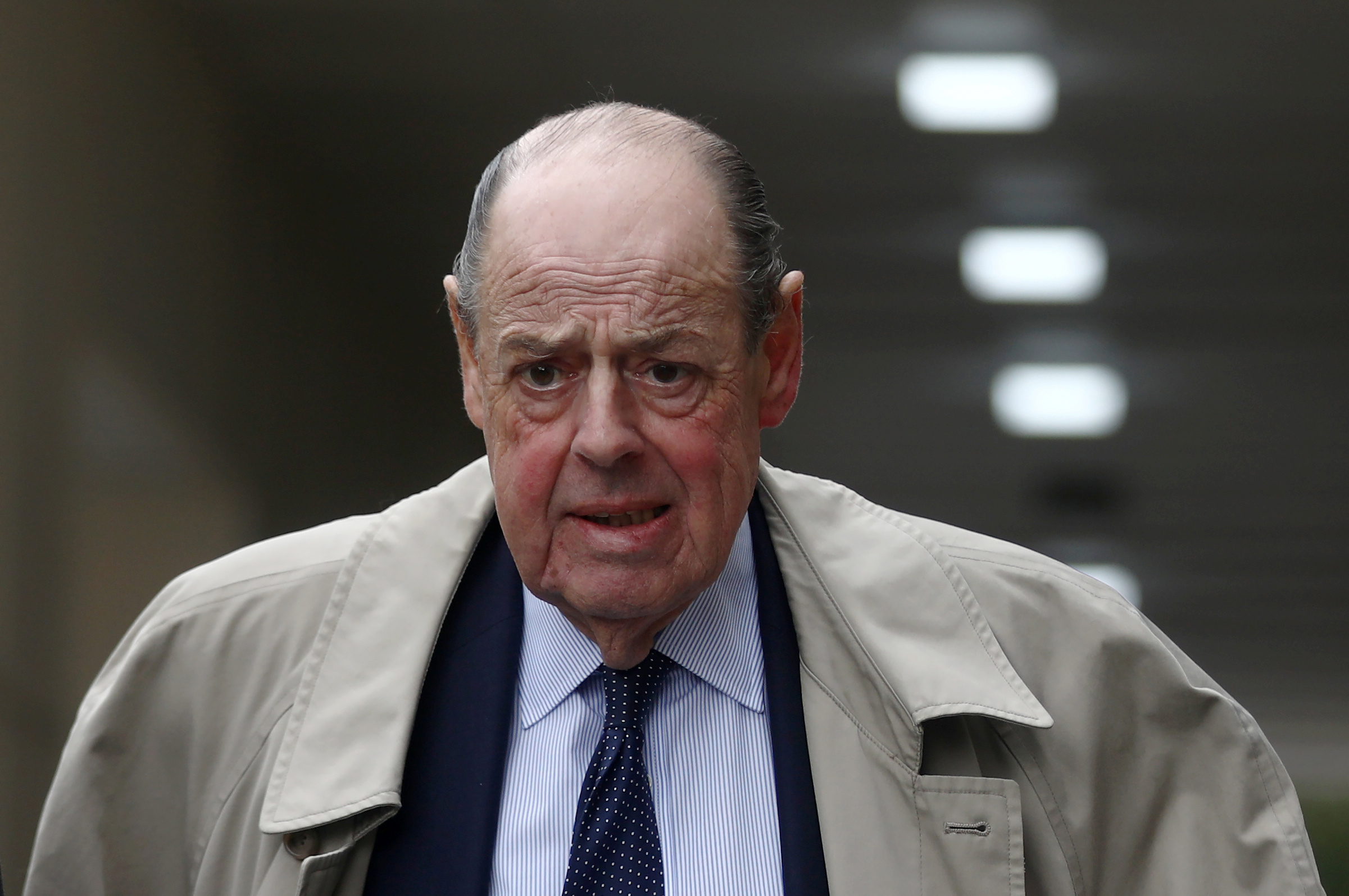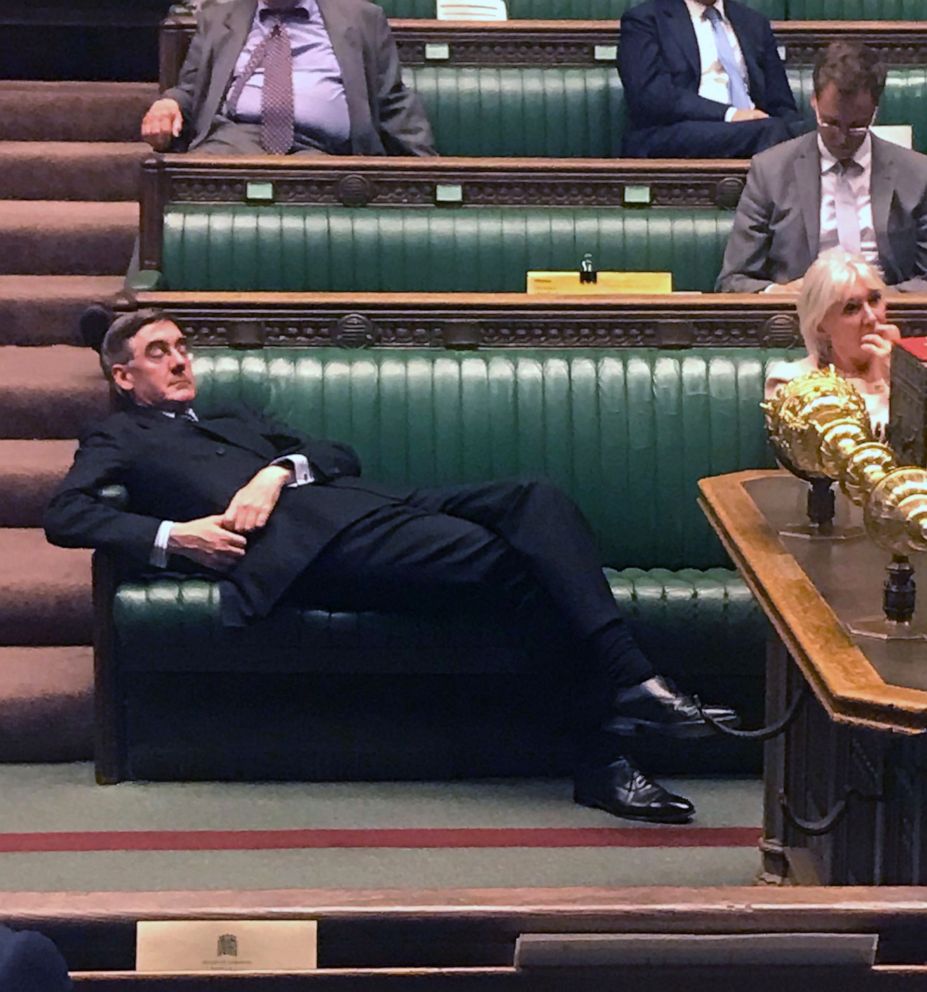Churchill’s grandson and 20 other MPs expelled from the Conservative Party for voting against hard Brexit
Boris Johnson punishes party members who vote against him.
LONDON -- Sir Nicholas Soames, the grandson of Britain’s World War II leader Winston Churchill, has been expelled from the Conservative Party for going against Boris Johnson over Brexit.
He and 20 other Conservative members of Parliament "had the whip removed" following their votes against the Conservative Party and Prime Minister Boris Johnson, which helped to defeat the government's position.
A member of parliament since 1983, Soames had only voted against the government three times in his career, he told the BBC last night, but added "that’s fortunes of war, I knew what I was doing."
Last night was the first vote overseen by Boris Johnson since he became prime minister six weeks ago. Opposition lawmakers and the 21 rebel Conservatives united to take control of the Parliamentary agenda in order to prevent a no-deal Brexit.

The debate, which lasted until well into the night, was heated, dramatic and at times comical – even by the standards that we have come to expect of all Brexit debates. Speaker John Bercow’s cries of "order, order" echoed as usual through the chamber. Early on, Conservative MP Philip Lee defected from the Conservative Party, standing up and crossing the chamber to sit with the opposition Liberal Democrats. His decision to quit his party has come after weeks of speculation and has cost the government its majority, weakening Johnson’s position.
In a statement, Lee accused the Conservative party of becoming "infected with the twin disease of populism and English nationalism." His walk across the chamber prompted cheers and jeers from other members of Parliament and forced Johnson to interrupt his speech to say that he wished his "honorable friend all the best."
Later in the evening, the leader of the House of Commons, Conservative MP Jacob Rees Mogg, who is strongly euroskeptic, was criticized for lounging on his bench during speeches, as though taking a nap.

Leader of the Green Party Caroline Lucas accused him, through his body language, of being "contemptuous of this House and of the people."
The U.K. is currently scheduled to leave the EU on Oct. 31 and Johnson has said that he will leave with or without a deal. Experts and the government’s own forecast predict that crashing out of the EU without a deal could have steep economic consequences for the U.K..
Last night’s vote paves the way for Parliament to introduce a motion Wednesday which could force Johnson to request an extension of the U.K.’s exit date until Jan. 31, 2020 – and prevent the U.K. from leaving without a deal.
Before the vote, Johnson said that this would "force us to beg for yet another pointless delay" and called it a "surrender bill."
"We are negotiating a deal, and though I am confident of getting a deal, we will leave by October the 31st in all circumstances," he added.
In explaining his decision to vote against Johnson, Soames told the BBC, "I just believe that they’re not playing straight with us ... to say that you want a deal is quite different to saying you want a deal that is achievable. And what [Boris Johnson] wants is not achievable."
Following his defeat, Johnson said he would call for a general election. That requires another vote in Parliament and needs to pass by a two-thirds majority. There is no guarantee, however, that an election will happen. Opposition leader Jeremy Corbyn tweeted his support for an election, but said it could only take place "once the Bill to stop No Deal is law."
Meanwhile, Johnson’s decision to expel long-standing and senior members of the Tory party has caused controversy. Among the 21 MPs expelled were Kenneth Clark, the longest continuously-serving member of the House of Commons, and the former finance minister, Philip Hammond.
Their expulsion means that they still remain members of Parliament but no longer caucus with the Conservative Party. They are also barred from standing as Conservative Party candidates in the next election unless the party decides to invite them back.
Nicholas Soames, however, will not stand in the next election. A representative for Soames told ABC News that he had made the decision not to run again before last night’s events.
Johnson is expected to motion for an early election later on Wednesday and he will need the support of 424 MPs to get it. But having lost control of his own agenda – and perhaps his own party – he may have a tough time securing one without the backing of many of the rebel MPs who voted against him last night.




